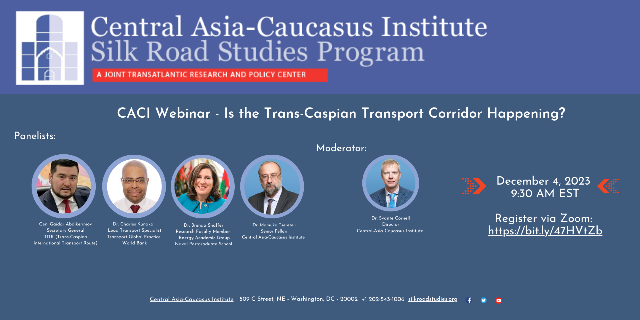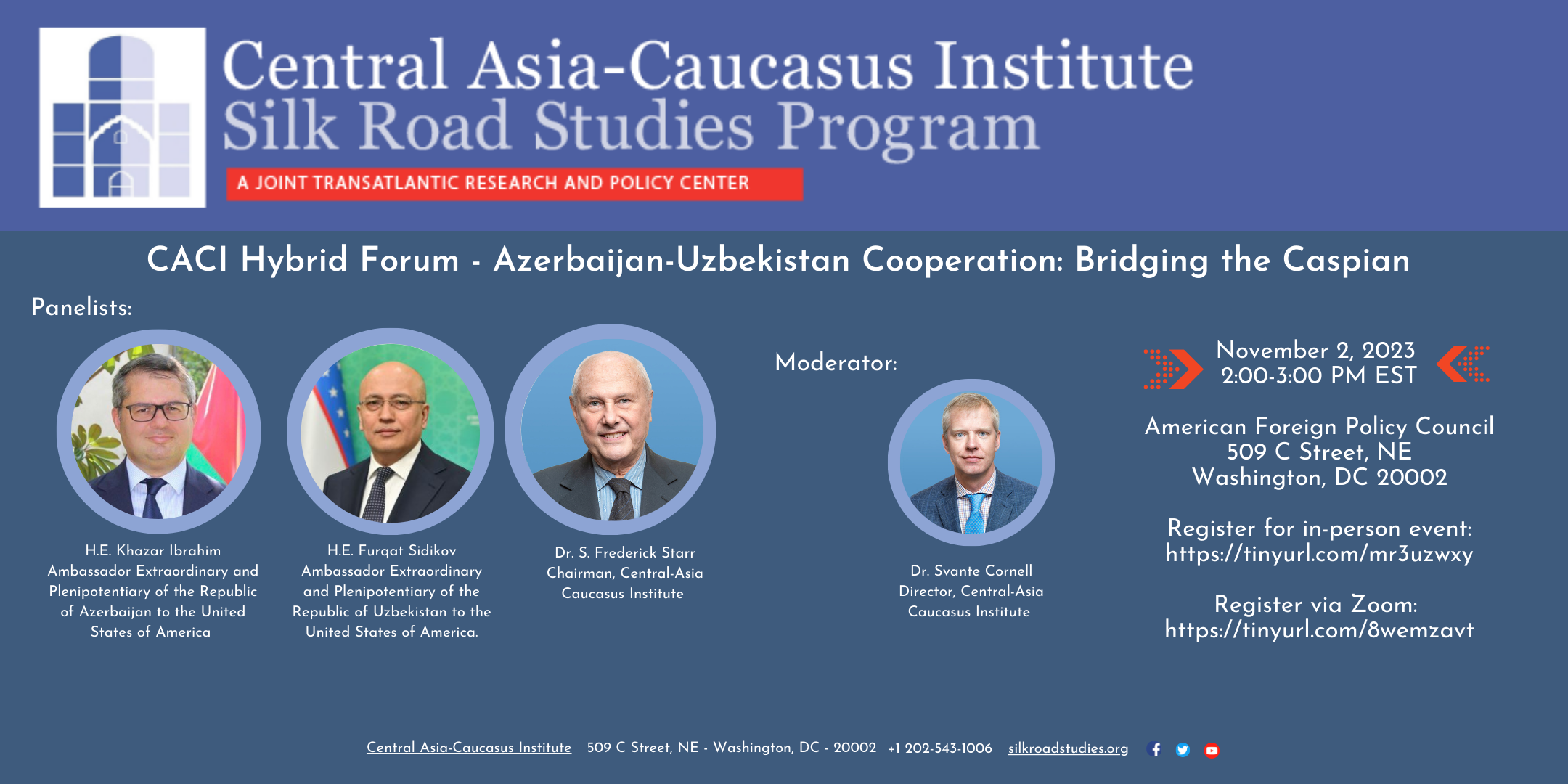Register for the 2024 CAMCA Conference - June 12-13 - Bishkek, Kyrgyzstan
Register for the annual Central Asia - Mongolia - Caucasus - Afghansitan (CAMCA) Regional Forum scheduled for June 12-13 in Bishkek, Kyrgyzstan. The CAMCA Regional Forum is a non-political and non-partisan Forum established to promote region-wide discussions on means of advancing economic growth and development in the 10 countries of the region: Afghanistan, Armenia, Azerbaijan, Georgia, Kazakhstan, Kyrgyzstan, Mongolia, Tajikistan, Turkmenistan and Uzbekistan. It promotes this goal by fostering dialogue and interaction among rising young leaders from all sectors in the 10 countries of the region, as well as with international leaders and stakeholders. The Forum organizers - the CAMCA Network, Central Asia-Caucasus Institute and the Rumsfeld Foundation - believe that expanded communication and collaboration among talented professionals from a range of fields can significantly contribute to economic, political and social development on both a national and regional basis.
The Forum is a premier opportunity to engage with prominent influencers and leaders in the CAMCA region and to gain firsthand insights on the region’s pulse and latest developments. The Forum’s non-political and non-partisan mission facilitates an environment for open conversation aimed toward the prosperity of the region and its people. The Forum was established as one of the first and only platforms to bring together representatives of the 10 CAMCA countries, spanning from the South Caucasus to Mongolia, to discuss emerging opportunities for regional cooperation and integration. Due to the diverse and impressive pool of participants, the Forum essentially serves as a ‘one-stop shop’ for professionals of all sectors who are interested in regional cooperation and partnerships, as well as for outside nations, businesses and organizations that have an interest in engaging with the region.
Click here for more information and to register.
Watch the 12/4 CACI Webinar - Is the Trans-Caspian Transport Corridor Happening?

The vision of a transportation corridor linking Europe to Asia through the Caucasus and Central Asia was conceived almost a soon as the USSR collapsed. However, in spite of progress, major infrastructure remains to be built for this corridor to truly matter. In the past year, geopolitical developments have spurred the states in Central Asia and the Caucasus into action. Major regional states have linked arms like never before to speed this corridor into realization. To discuss the corridor, its challenges and its implications, the Central Asia-Caucasus Institute invites you to the following web-based Forum.
PANELISTS:
- Gen. Gaidar Abdikerimov, Secretary General, TITR (Trans-Caspian International Transport Route)
- Dr. Charles Kunaka, Lead Transport Specialist, Transport Global Practice, World Bank
- Dr. Brenda Shaffer, Research Faculty Member, Energy Academic Group, Naval Postgraduate School
- Dr. Mamuka Tsereteli, Senior Fellow, CACI
MODERATOR:
- Dr. Svante Cornell, Director, Central Asia-Caucasus Institute
The Changing Geopolitics of Central Asia and the Caucasus

Watch the fall 2023 Rumsfeld Foundation Fellows' Hybrid Forum, "United We Thrive, Divided We Fall"
Watch the 11/2 CACI Hybrid Forum - Azerbaijan-Uzbekistan Cooperation: Bridging the Caspian

In recent months, Azerbaijan and Uzbekistan have concluded important agreements. This is an indication that the cooperative spirit that has developed in Central Asia is extending across the Caspian Sea to the South Caucasus as well. On November 2, CACI hosted a hybrid Forum discussing the implications of this trend for the wider region.
PANELISTS:
- H.E. Khazar Ibrahim, Ambassador Extraordinary and Plenipotentiary of the Republic of Azerbaijan to the United States of America
- H.E. Furqat Sidikov, Ambassador Extraordinary and Plenipotentiary of the Republic of Uzbekistan to the United States of America
- Dr. S. Frederick Starr, Chairman, Central Asia-Caucasus Institute
MODERATOR:
- Dr. Svante Cornell, Director, Central Asia-Caucasus Institute
Scroll down to watch the recording or click here to watch on YouTube.

